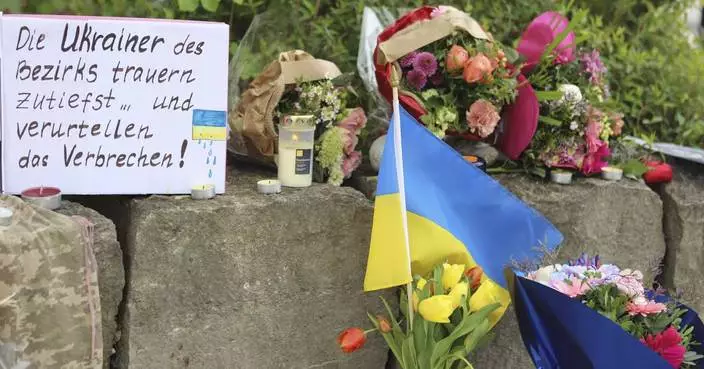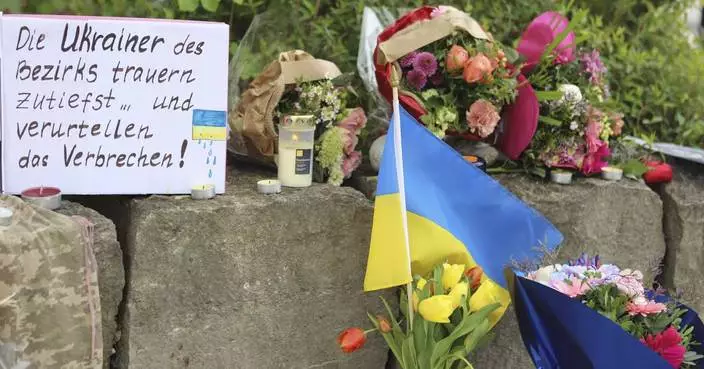Breaking the impression that catwalk models must be perfect-looking in every respect, Russian disabled athlete Olesya Vladykina wowed the audience with her beauty and full confidence in a fashion show held in Moscow. Wearing a series of outfits created by Kazakhstani fashion designer Mikhail Kravets, 29-year-old Vladykina was not discouraged by her amputated left arm and strutted along the runway in style.
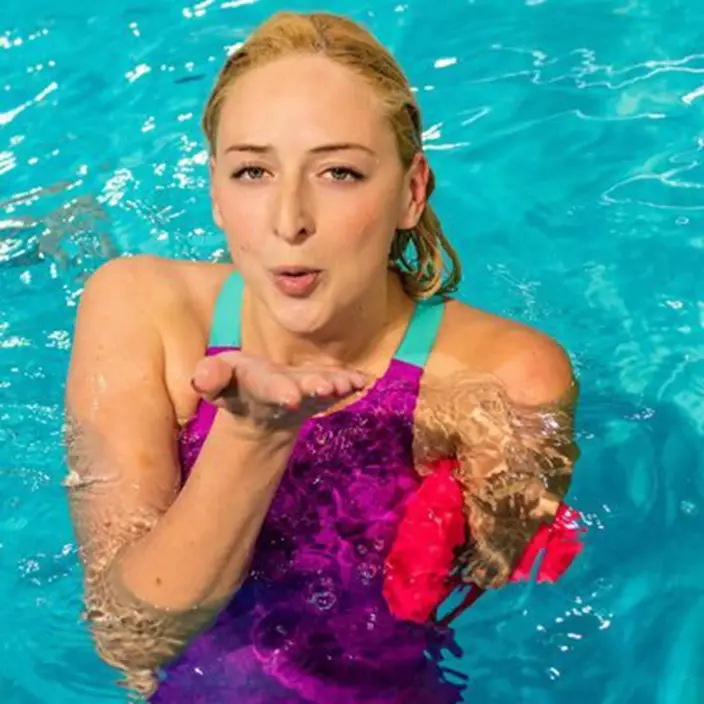
Losing her arm 9 years ago from a car accident during her travel in Thailand, Vladykina did not let the tragedy cast a gloom on her life but accepted the “imperfection” of her body by holding up to her belief of “what doesn’t kill you make you stronger”.
Finding her talents in swimming, Vladykina restarted her life as a disabled swimming athlete. She broke the world record and won gold in the 100-meter breaststroke in the Beijing Paralympics Game in 2018, and dedicated her medal to her friend who passed away in the accident. Her swimming career was further elevated in 2012 as she defended her gold medal, broke the world record once again and gained a first-runner up medal in the 200-meter medley swimming in the London Paralympics.
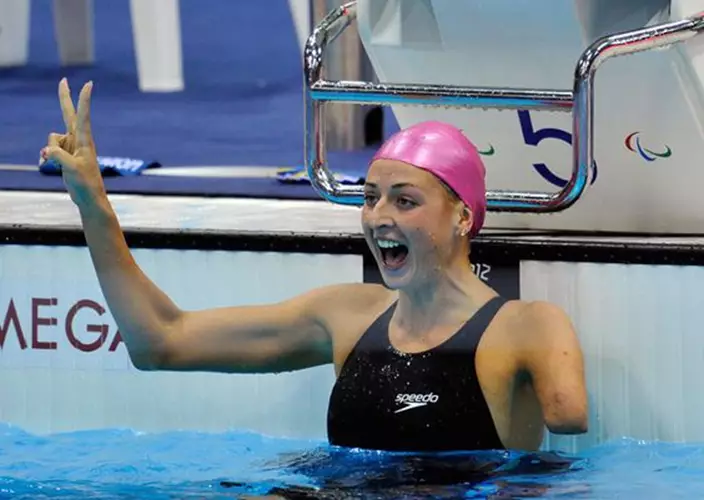
TBILISI, Georgia (AP) — The parliament of Georgia cancelled its Thursday plenary session following massive protests against a proposed law that critics fear will stifle media freedom and endanger the country’s bid for membership in the European Union.
The parliament’s announcement said the cancellation was connected to damage the building suffered during Wednesday protests in which police used water cannon, tear gas and pepper spray against the tens of thousands of demonstrators.
The legislature on Wednesday approved a second reading of the bill that would require media and non-commercial organizations to register as “pursuing the interests of a foreign power" if they receive more than 20% of funding from abroad.
The third and final reading was expected in mid-May and it was not clear if the cancellation of Thursday’s session would affect the bill’s progress. The ruling Georgian Dream party withdrew a similar proposal last year after large crowds protested.
Protesters denounce the bill as “the Russian law” because neighboring Russia uses similar legislation to stigmatize independent news media and organizations critical of the Kremlin.
Eighty-three of Georgia’s 150 lawmakers approved the bill in its second reading, while 23 voted against it.
Georgian President Salome Zourabichvili, increasingly at odds with the governing party, has criticized the bill and vowed to veto it if it is passed by Parliament. But the governing party can overrule the veto and ask the parliamentary speaker to sign the bill into law.
The EU’s foreign policy arm earlier this month also criticized Georgian Dream’s decision to reintroduce the law, which it said “raises serious concerns” around media freedom in the country — something it called “crucial for the EU accession process.”

Demonstrators help their comrade being wounded in clashes with police during an opposition protest against "the Russian law" near the Parliament building in Tbilisi, Georgia, on Thursday, May 2, 2024. Protesters denounce the bill as "the Russian law" because Moscow uses similar legislation to stigmatize independent news media and organizations critical of the Kremlin. (AP Photo/Zurab Tsertsvadze)
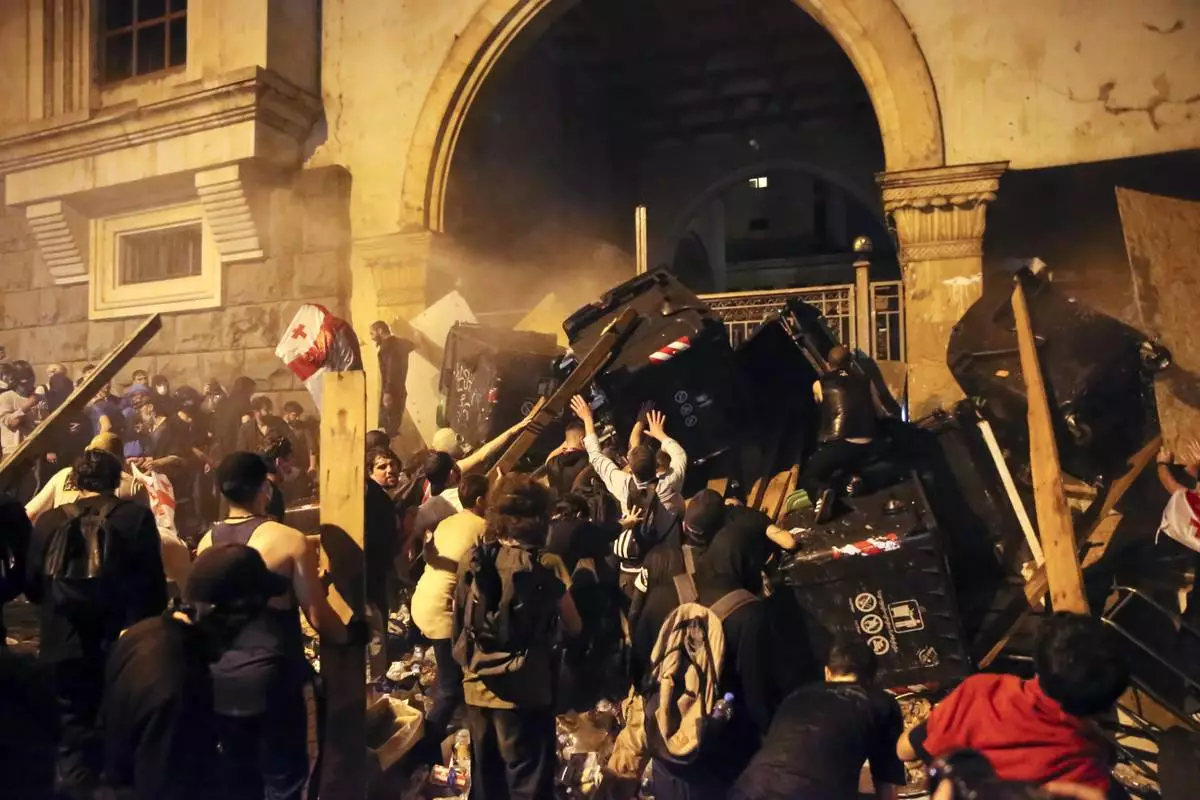
Demonstrators build a barricade to close an entrance of the Parliament building during an opposition protest against "the Russian law" in Tbilisi, Georgia, early Thursday, May 2, 2024. Protesters denounce the bill as "the Russian law" because Moscow uses similar legislation to stigmatize independent news media and organizations critical of the Kremlin. (AP Photo/Zurab Tsertsvadze)
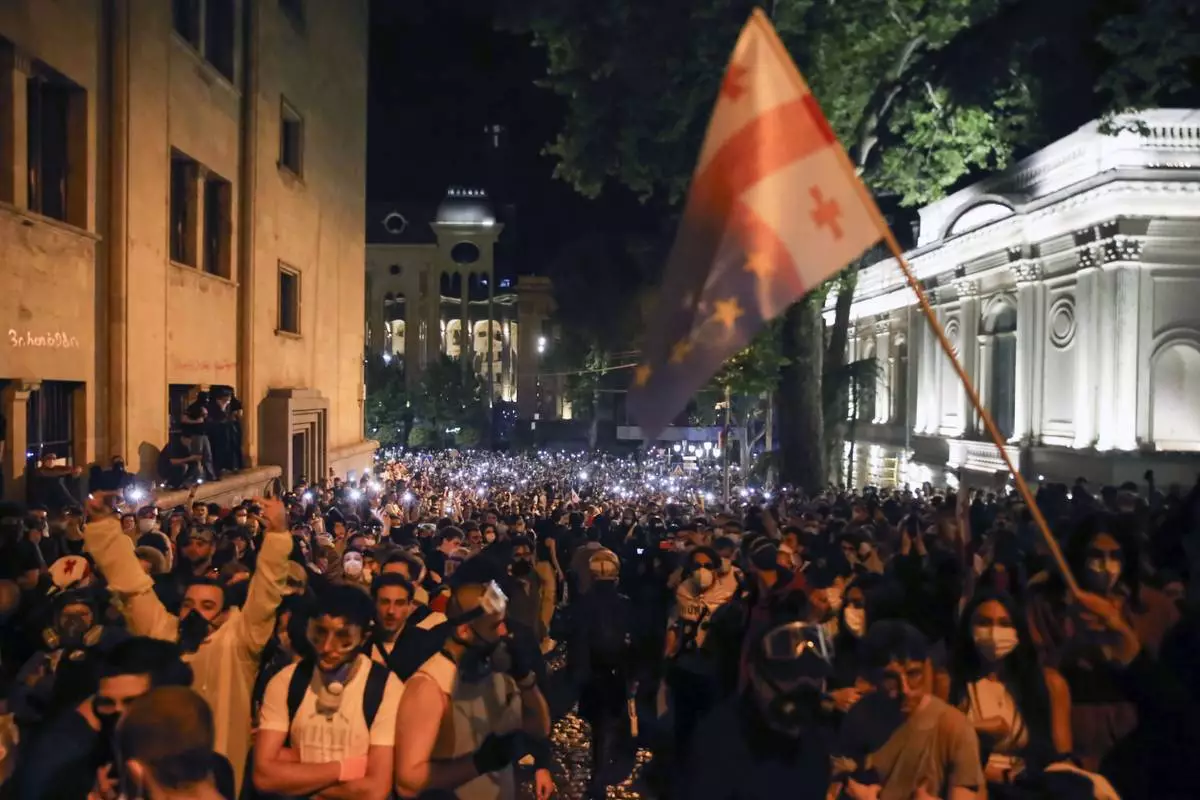
Demonstrators gather during an opposition protest against "the Russian law" near the Parliament building in Tbilisi, Georgia, early Thursday, May 2, 2024. Protesters denounce the bill as "the Russian law" because Moscow uses similar legislation to stigmatize independent news media and organizations critical of the Kremlin. (AP Photo/Zurab Tsertsvadze)
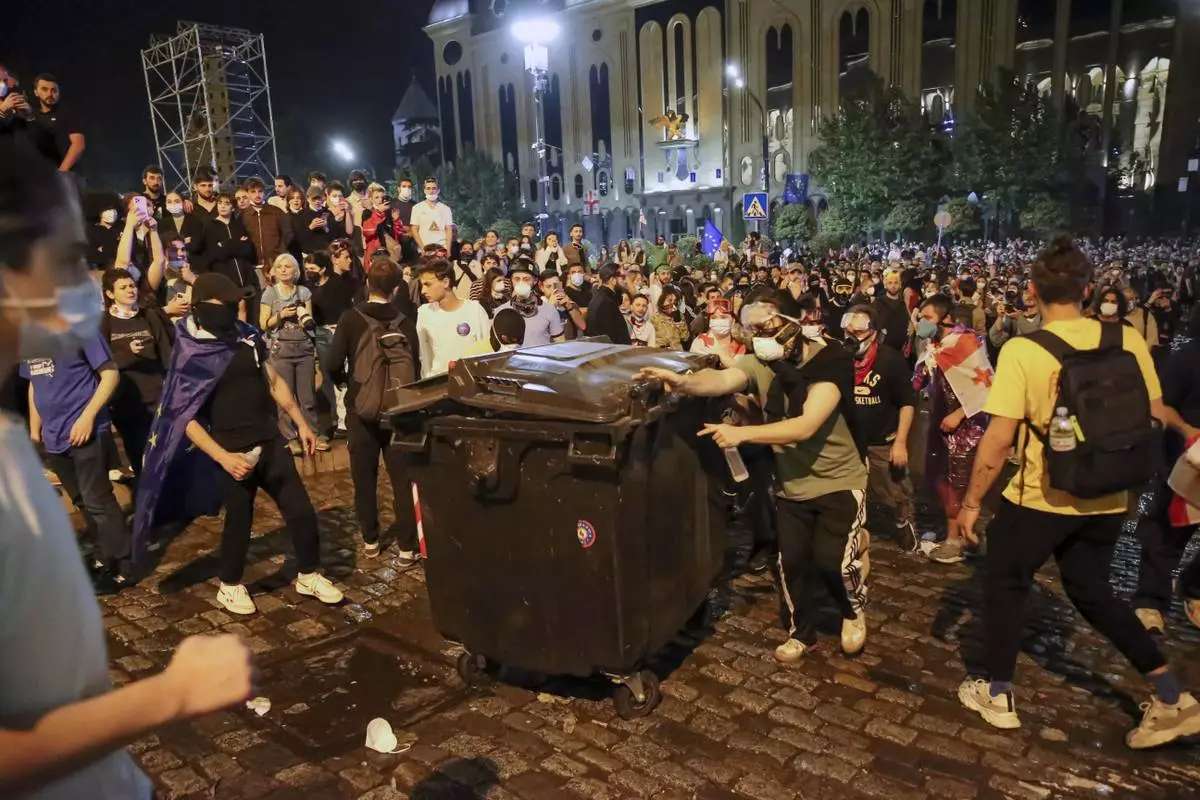
Demonstrators build a barricade during an opposition protest against "the Russian law" near the Parliament building in Tbilisi, Georgia, early Thursday, May 2, 2024. Protesters denounce the bill as "the Russian law" because Moscow uses similar legislation to stigmatize independent news media and organizations critical of the Kremlin. (AP Photo/Zurab Tsertsvadze)
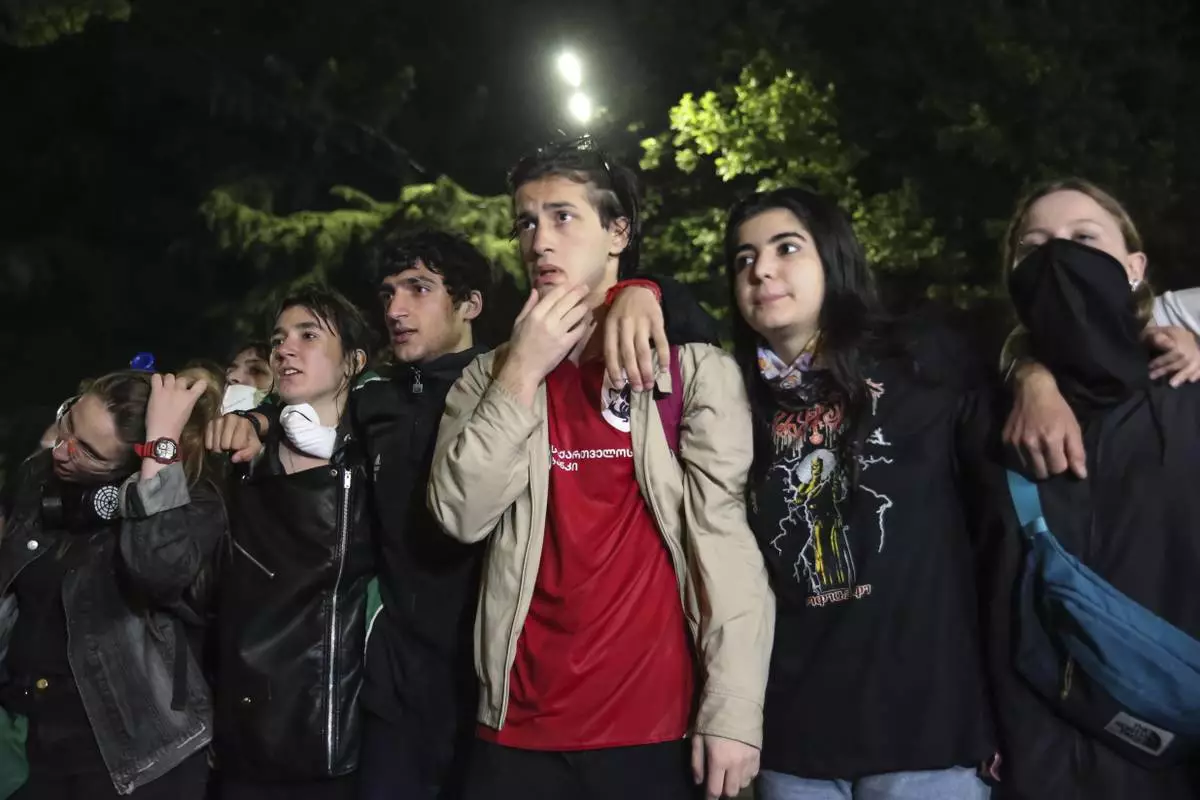
Demonstrators stand in front of police block during an opposition protest against "the Russian law" near the Parliament building in Tbilisi, Georgia, on Thursday, May 2, 2024. Protesters denounce the bill as "the Russian law" because Moscow uses similar legislation to stigmatize independent news media and organizations critical of the Kremlin. (AP Photo/Zurab Tsertsvadze)

Demonstrators wave a Georgian national flag standing in front of police block during an opposition protest against a bill near the Parliament building in Tbilisi, Georgia, on Thursday, May 2, 2024. Protesters denounce the bill as "the Russian law" because Moscow uses similar legislation to stigmatize independent news media and organizations critical of the Kremlin. (AP Photo/Zurab Tsertsvadze)











